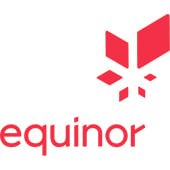
Norway 2019

Chief competition counsel | Equinor ASA


Elisabeth Wiggen
Chief competition counsel | Equinor ASA
What are the most important transactions and litigations that you have been involved in during the last two years?
I have not been involved in litigations the last two years, but as the oil price has picked up again after the crisis some years back, there has been a considerable amount of transactions going on and as a result, I have been involved in 25-30 transactions each year, many of those within our renewable energy business or through our venture funds. As responsible for a specialist discipline, my involvement in transactions consists of sorting any competition issues and securing regulatory approval for the transactions, as well as ensuring compliance in the integration phase, avoiding gun-jumping and enrolling the new business in our competition compliance programme after the transaction has been completed.
In what ways do you see the in-house legal role evolving in your region over the next few years?
First and foremost, I think the in-house legal profession will grow in numbers. Previously, only the larger corporations in Norway had in-house counsel, but I can see that smaller companies have also started to hire in-house counsel in recent years. This is a natural development since the world is becoming increasingly legalistic and regulated and requirements to businesses to comply with regulations are strengthened. Also, many businesses in Norway export their products and expand internationally, and consequently there is a need for in-house counsel with more international experience and background.
What would you say are the unique qualities required to be successful as an in-house lawyer in your industry?
Ability to deliver clear, concise and understandable legal advice within a short timeframe, in-depth understanding of business’ needs and business context, effectiveness and ability to prioritise and handle a heavy work load.
Do you have any effective techniques for getting the most out of external counsel, in terms of how to instruct them?
To get the most out of external counsel, I believe it is important that the in-house counsel does not simply leave the matter to the external counsel and wait for the result, but that the in-house counsel works closely with the external counsel to prioritise tasks and guide the external counsel to achieve a result that is in a format and structure suitable for the business needs. This starts with the scope of work where costs can be cut, and time saved by being specific about what you need from the external counsel compared with what you can deliver yourself in-house.
Have any new laws, regulations or judicial decisions greatly impacted your company’s business or your legal practice?
On an overarching level, the greatest impact on our industry in the last decade has come more from stakeholder expectations and international agreements and conventions such as the UN Sustainable Development Goals, the UN Global Compact and the Paris Climate Agreement. This has fundamentally changed the way we do business and impacted our strategy, governance and decision-making. It has resulted in a transition from a traditional oil and gas company to a broad energy company, investing heavily in new energy and renewables businesses and technology. This was also reflected in our name change from Statoil to Equinor in 2018.
Looking forward, what technological advancements do you feel will impact the role of in-house legal teams in the future the most?
I am not a technology geek, but artificial intelligence will most likely fundamentally alter the legal profession, both in-house and in external law firms. I foresee that the time spent on legal research and going through multiple sources or vast amount of information in a litigation or investigation may shorten considerably by deployment of artificial intelligence.
What can law firms do to improve their services to the legal department?
An external law firm needs to be able to add value as opposed what an in-house legal department may deliver itself. This means that the external law firm needs to have more specialist competence, more resources and better technology. On top of that, it is important not to be overly legalistic or theoretical, but to be practical and deliver clear advice and solutions instead of focusing on minor and less probable legal risks.